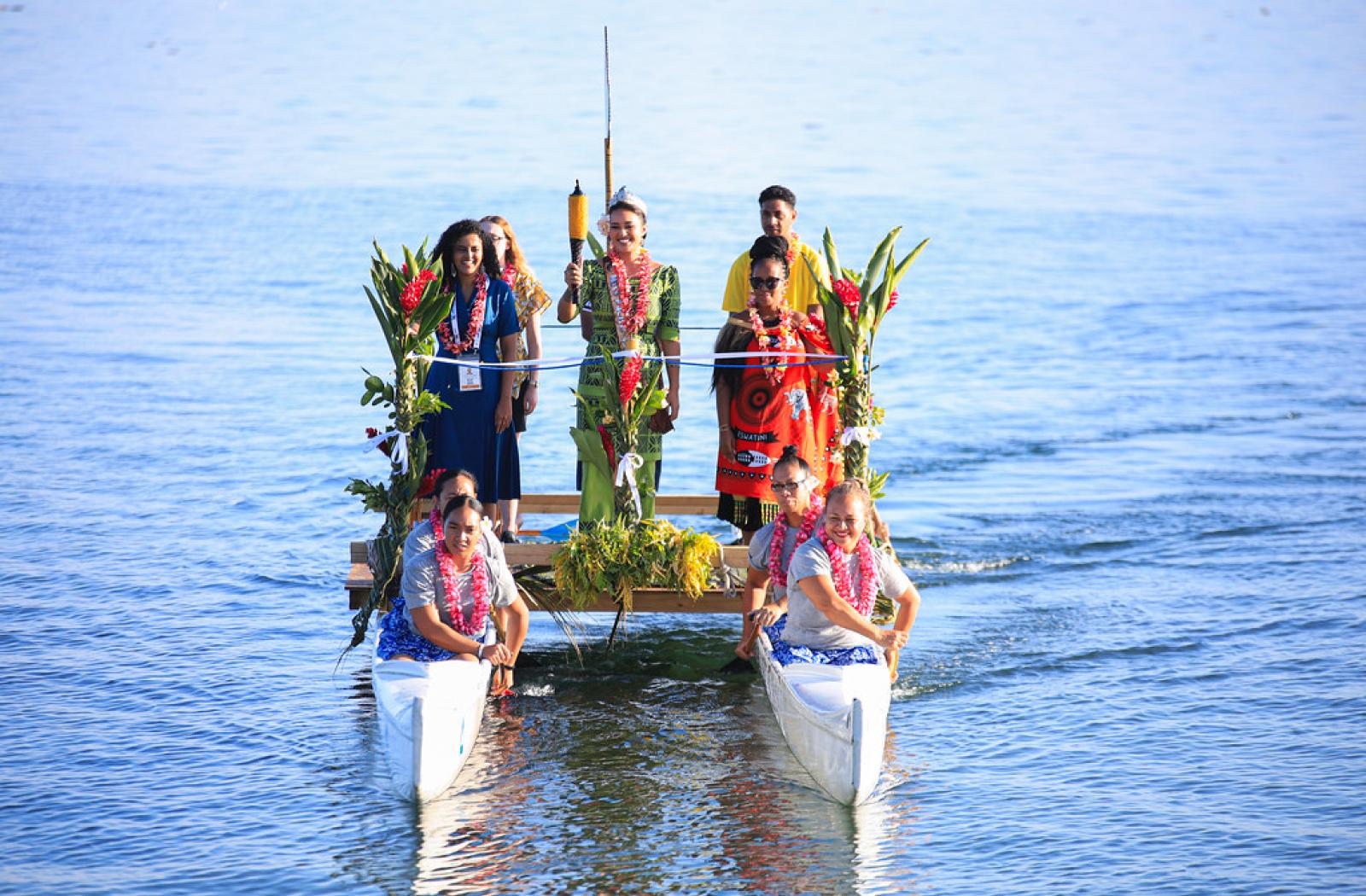Commonwealth nations made history by adopting their first ocean declaration during a summit in Samoa, the first to be held in the Pacific island nation.
The Apia Ocean Declaration was unveiled at the conclusion of the 27th Commonwealth Heads of Government Meeting (CHOGM). It calls on all 56 Commonwealth nations to protect the ocean from critical threats such as climate change, pollution, and overexploitation.
The declaration emphasizes the need to recognize maritime boundaries in the context of rising sea levels. It aims to protect 30% of the world’s oceans and restore damaged marine ecosystems by 2030, while also advocating for the rapid completion of the Global Plastics Treaty.
Additionally, the declaration supports the ratification of the high-seas biodiversity treaty, the development of coastal climate adaptation strategies, and increased backing for sustainable blue economies.
Samoa’s Prime Minister Fiame Naomi Mata’afa noted that it was fitting for “our first ocean declaration” to emerge from the Blue Pacific, as climate change poses a significant threat to the safety and welfare of island communities. Many Commonwealth nations, particularly smaller ones like Samoa, face serious challenges from rising sea levels.
While environmental issues were anticipated as a key theme of the summit, initial discussions largely centered on the transatlantic slave trade and its impact on Britain’s colonial history.
The Commonwealth includes a third of the global population, with 49 of its 56 member countries having coastlines. The organization reports that 25 of its members are confronting significant climate challenges, including rising sea levels, increasing temperatures, and heightened ocean acidity, all of which threaten marine life and the communities that depend on it.
Mata’afa stated that the declaration should serve as “a line in the sand” for the world to shift from “ocean exploitation to protection and sustainable management.”
Outgoing Commonwealth Secretary-General Patricia Scotland expressed pride in the achievement, noting that it “sets the standard for upcoming international meetings, building momentum for ocean protection as we approach COP29 in Azerbaijan this November and next year’s UN Ocean Conference.”
Calls for accountability regarding Britain’s role in the transatlantic slave trade continue from some former colonies, particularly in the context of reparative justice. At its peak in the 18th century, Britain was the largest slave-trading nation, transporting over 3 million Africans across the Atlantic.
The repercussions of this history are evident in some of the U.K.’s wealthiest institutions, including the Church of England, Lloyd’s of London, and the monarchy.
King Charles III, attending his first CHOGM as monarch, acknowledged in his address on Friday that while history cannot be changed, the “most painful aspects of our past continue to resonate.” He did not directly address reparations, despite some leaders advocating for them, but his remarks were seen as acknowledging the strong sentiments surrounding the issue in formerly colonized nations.
British Prime Minister Keir Starmer arrived at the summit with a commitment that the U.K. would not apologize for slavery or engage in discussions on reparations, a promise he largely maintained. However, the final leaders’ statement included a call for “meaningful, truthful, respectful conversation” to foster a just future.
The official Leaders Statement, comprising 52 points, also directed the Commonwealth secretary-general to engage with governments and stakeholders on discussions about reparatory justice, with particular focus on the effects on women and girls.

